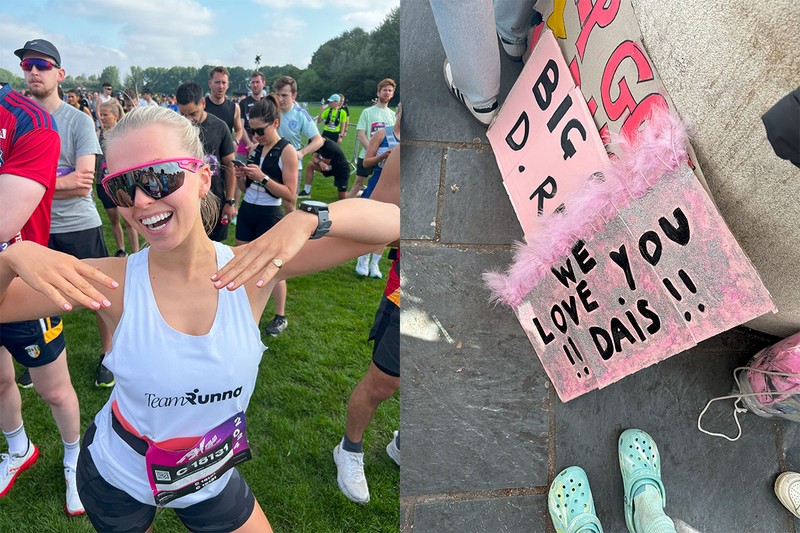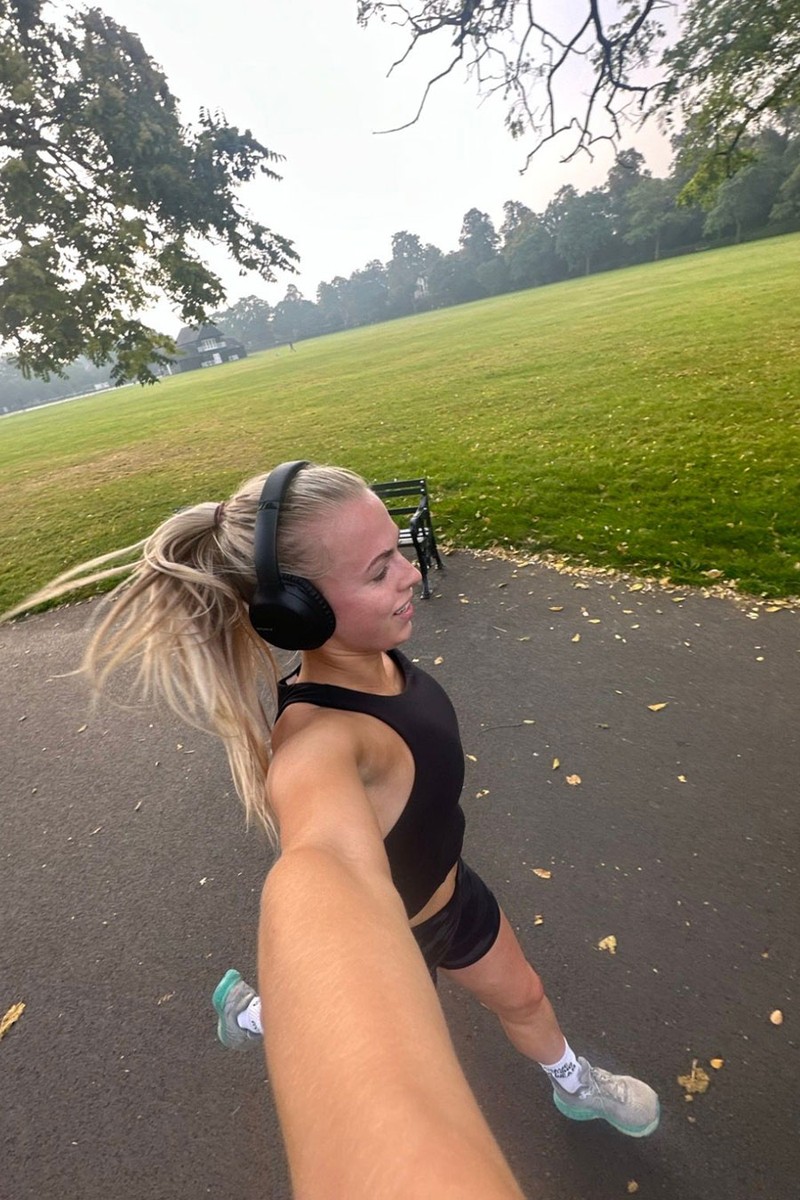
The SL Marathon Diaries: Daisy Reed
Running the London Marathon two years ago was an experience I’ll never forget – equal parts amazing and chaotic. There were insane adrenaline rushes, often triggered by someone yelling your name (seriously, add your name to your bib – this is not the time to play it cool) or an emotional tribute on someone’s t-shirt that puts things into perspective, or the sight of someone running barefoot. It’s wild out there.
The whole day is a rollercoaster of emotions and a parade of human resilience. Running a marathon isn’t easy, but it’s one of the most rewarding things you’ll ever do. Whether it’s your first one or your fifteenth, the things you experience along the way make it all worthwhile – and can be pretty funny in hindsight.
Back in 2022, I was inspired by my best friend smashing her race, so a year later, I nervously pinned on my bib, thinking, “What have I got myself into?” Fast forward to race day: I finished my first-ever marathon in 3 hours and 57 minutes and raised over £3,500 for Children With Cancer.
It was an incredible day, but let’s just say I learned a lot the hard way. Now, as I prepare for my second marathon this April, I’ve taken stock of everything that worked, everything that didn’t, and all the ways I can (hopefully) make this one a smoother ride. Here’s what I’ll be putting into practice the second time around…
Calm Your Nerves
The night before the marathon, I thought watching William Goodge’s documentary about running across America was a good idea. Spoiler alert: it wasn’t. My adrenaline shot through the roof, and I couldn’t sleep until 3am – not great when you’re running 26.2 miles the next morning. Learn from me and save the high-energy inspiration for post-race celebrations. Instead, have a quiet evening and an early night. And stop questioning why you signed up. You’re ready – really.
Prepare For Rain
It was chucking it down on race day, and I hadn’t thought to bring a bin liner. Rookie mistake. A bin liner isn’t just a fashion statement (it’s quite the look); it’s great for keeping you dry and giving you a dry place to sit at the start line. Also, bring an old hoodie to the start line. Bonus: any discarded clothing is donated to charity, so you can part with your hoodie guilt-free.
Don’t Rely on GPS
During the marathon, GPS signals can be patchy thanks to buildings or crowds. If you’re aiming for a specific pace, don’t rely on your watch. Write the splits on your hand or save them as your phone lock screen instead. It’s old school, but it’s also foolproof.
Turn On Live Messages
If you’re running with headphones, enable live text-to-speech for messages. Hearing my friends and family yell “COME ON DAIS!” through my headphones got me out of so many low points. It’s like a personal cheering squad in your ears – and trust me, you’ll need it.
Soak Up The Highs
Running over Tower Bridge was a moment I’ll never forget. The noise, the cheering and the energy were enough to make me burst into tears. Take a moment to soak it in. It’s worth it – and you’ll need the memory of that high to carry you through the tougher parts.
Plan For No Man’s Land
By the time you hit 35k, you’ll probably be in uncharted territory. If you’ve got supporters on the route, ask them to bring carbs or electrolytes to hand off at this point. A well-timed bottle of carbohydrates saved me from a complete meltdown.
Break Down The Wall
Hitting a wall during a marathon is inevitable – it’s practically a rite of passage. You’ve likely encountered one in training, but here’s the good news: walls can be broken. When you’re in the thick of it and feel like you can’t take another step, keep pushing on. You will break through to the other side.
And Finally, Some Marathon Must-Haves…
The right prep – and the right gear – can make all the difference. First up, fuel. I used Clif Bloks during my first marathon and loved them, but this time I’m trying Maurten gels to see if they give me that extra edge. Whatever you choose, practise with it in training – the race itself is not a time for surprises. Speaking of preparation: Imodium. It might not be glamorous, but trust me, it’s your best friend on long runs. For training accountability, I rely on the Runna app. It’s brilliant because it not only keeps you on track but lets you adjust your schedule around real life – a game-changer when your diary is packed. Finally, let’s talk gear. I’m all about the Lululemon Wunder Train Racer Back for comfort and style, and I’ve always been a New Balance girl. My go-to shoes are Fresh Foams for long runs and the FuelCell Rebel v4 for speed sessions. For tempo and recovery runs, the Puma Velocity Nitro 3 is another favourite. Finding the right kit can make training (and racing) so much more enjoyable.
Follow @DAISREED
DISCLAIMER: We endeavour to always credit the correct original source of every image we use. If you think a credit may be incorrect, please contact us at info@sheerluxe.com.




